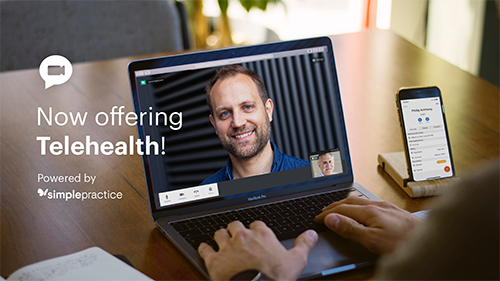Career Counseling
Deciding to make a change
Everyone’s job search begins differently. Some people choose to make a career change, others find themselves looking for a job through no choice of their own. It’s deeply personal and only you can know when searching for a job feels right.
In a recent survey, 91% of employed adults said they look for jobs at least a few times a year, so for many people, job searching is a regular activity. Like any activity, you’ll get better with practice. We can work together to help you hone your search skills and land the job you want.
No matter how your job search has begun, an important first step is considering what you really want to do at work. You may want to progress in the same career, change career paths, or not be sure of the course you’re on. In any of these cases, you’ll need to get specific about the job you’re looking for next: both to decide where to focus your search and so you can confidently answer interview questions about why you’re attracted to a particular role.
In 2008 the Great Recession, the worst financial disaster since the Great Depression in 1929, changed the job search landscape. If you were looking for a job in 2008 you likely had a resume and sent it out to prospective employers. You most likely used "job boards" to view vacancies. And this could have gone on for days if not weeks and months. Unfortunately, this is not the best strategy anymore.
In the Covid-19 economy employers have an easier time filling vacancies because there are many more unemployed to choose from. Thus, employers have changed tactics. They may not be reading your resume or posting vacancies. The Bureau of Labor Statistics reported in 2018 that 30% of job-seekers are spending more than a year looking for work; 30% are taking one to three months to find work; about 10% are taking three to six months and 20% are taking six months or longer. In addition, the US Department of Labor found that people are holding more jobs - thus, job-hunting is something that is to be expected in a landscape where jobs don’t last as long as they used to.
Finally, the so-called “job-boards” have been redefined. Thousands of “job-boards” now exist as the job-hunting has moved online. There are also social media sites such as LinkedIn, Facebook, Twitter, and Instagram that are being used. You will have to adapt to the employers' preference. Thus, in today’s world, the person who gets hired is not necessarily the one who can do the job best; but the one who knows the most about how to get hired.
In the past someone who lost their job might have gone through a retraining program. Unfortunately, job retraining doesn’t guarantee that you will find a job in the new market you are applying for. You are severely limiting yourself to finding job’s that fit a specific job-title. Instead, we can work together to find multiple skills and experiences that you can use to approach multiple job markets. We will take the time to focus on what is most important in your life right now and how you can keep yourself open to possibilities.
By working on yourself you will be able to explain to other people in your life what kinds of jobs you're interested in, allowing them to increase their helpfulness to you and find jobs you would otherwise never find. In addition, when you gain a better understanding of yourself and the job that you would like to find you’ll inevitably approach the job-search with more effort and enthusiasm.
Finally, doing a SELF-inventory will allow you to be more polished during your job interview. You will be able to describe to your employer exactly what is unique about you and what you can bring to the table that the other job candidates do not. Or, if you are changing careers, you will be able to see what new career or direction you want for your life.
If you're unemployed now, this is an opportunity for you to take an inventory or who you are and what you love to do, before you set out on your search for meaningful work. You should be looking for a life that you can be proud of.
As we age, things often don’t turn out as nicely as we had planned. We may not climb up the career ladder as quickly as we wished. Or we do, only to find that prestige and a high income are not as satisfying as we expected them to be. At the same time, high expectations about the future adjust downward. Midlife essentially becomes a time of double misery, made up of disappointments and evaporating aspirations.
A mid career crisis can happen to anyone. The Canadian psychologist Elliott Jaques defined a midlife crisis as a period in our lives when we come face-to-face with our limitations, our restricted possibilities, and our mortality. It effects senior-level executives, blue-collar workers and stay-at-home parents. Childless couples, single people or parents of four and even those who have fulfilling jobs can experience a crisis. In short, a mid career crisis does not discriminate. When this crisis arises it brings pain and productivity loss. A study done in Great Britain found that the job satisfaction of the average employee deteriorates dramatically in midlife. Mid Career crises are a widespread regularity rather than the misfortune of a few individuals.
Together we can work on how to cope with the mid career crisis. Through therapy you can learn how to accept life and feel less regret about the past. While a mid career crisis can be a painful time in life, it can also be an opportunity to reflect and to reevaluate personal strengths and weaknesses. Fortunately, in the second half of people’s working lives, job satisfaction increases again, in many cases reaching even higher levels than earlier in their career.
Time is the currency of our lives, and how we spend it speaks volumes about what we think is important. A career is a long ride, and it’s more than just work: It’s a huge part of life. Take time to think strategically about your career journey. Only one person will be with you for the whole ride, and that’s you. Don’t just worry about it - take some action. Please call to schedule an appointment today.





